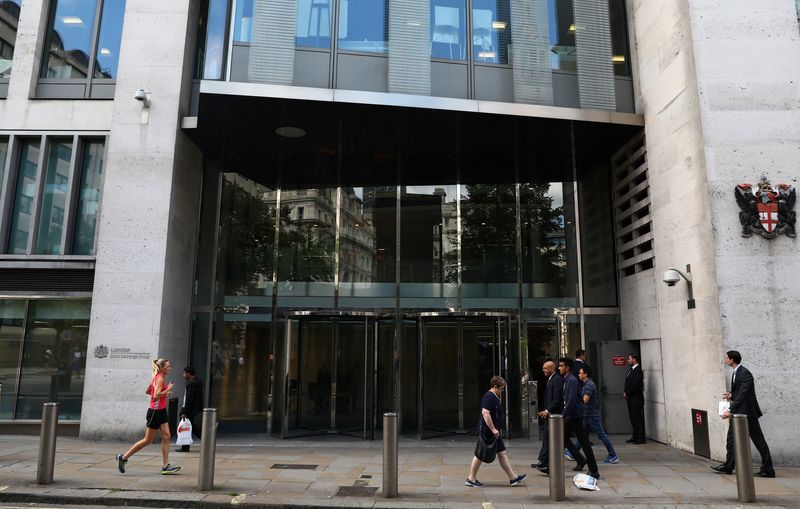By Pranav Kashyap and Nikhil Sharma
(Reuters) -European stocks closed flat on Monday, having earlier hit a three-month high on expectation Donald Trump would refrain from increasing tariffs on U.S. trading partners as soon as he is inaugurated as president.
The pan-European closed flat at 523.87 points, after adding more than 2% over the last week.
The automobile sector, which is particularly sensitive to news of tariffs, rose by 1.1%.
Donald Trump will issue a broad trade memo on Monday that directs federal agencies to evaluate U.S. trade relationships with China, Canada and Mexico, rather than using his first day in office to immediately impose tariffs, an incoming Trump administration official said.
In response, the U.S. dollar lost 1% while the euro gained 1.2%. [FRX/]
“There is a sense that it’s going to be more of a measured approach from Trump and that’s music to markets. That’s just what we needed to hear after months of worrying over how aggressive he may apply trade tariffs,” Fiona Cincotta, senior market analyst at City Index, said.
Gains were short-lived as caution took hold as Trump took the oath of office at 12:00 pm ET (1700 GMT).
European equities have been jittery on concern Trump’s protectionist policies could stoke inflation in the United States and Europe.
“There is still an element of uncertainty,” Cincotta added.
Germany is particularly vulnerable to any tariffs. German Finance Minister Joerg Kukies said Berlin would adopt a wait-and-see approach regarding the new U.S. president’s actions.
Germany’s benchmark stock index rose 0.4%.
The Euro zone banking index added 1.2%, the most among all sectors, followed by a 1.2% gain in the basic resources sector.
Utilities fell 1.1%, the most of any sector.
Among other stand-outs, Nemetschek jumped 10.4% after the German software developer reported its full-year results.
Siemens (ETR:) Energy dropped 3.4%, with traders pointing to a downgrade by UBS to “sell”.
On the macro front, German producer prices rose less than expected in December, increasing by 0.8% on the year.
European Central Bank policymaker Robert Holzmann said the central bank could damage its credibility if it cut interest rates when inflation rises faster than anticipated, even temporarily.
The ECB is widely anticipated to trim rates by a quarter point at its next policy meeting on Jan. 30.

The annual gathering of the world’s political, business and financial leaders at the World Economic Forum (WEF) in the Swiss town of Davos is another keenly watched event this week.
U.S. stock markets were closed for Martin Luther King Day, keeping trading volumes lighter than usual.
